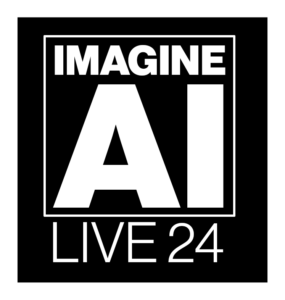With the rapid growth of artificial intelligence, both industry veterans and beginners are eyeing AI certifications to gain a competitive edge. Are these certifications essential, and which ones should you consider in 2024? This guide delves into the top AI certifications and provides resources for those starting their AI journey.
AI Certification vs. Certificate: Understanding the Difference
The terms AI certification and certificate might seem interchangeable, but they have distinct meanings.
AI certifications are awarded by professional bodies or educational institutions after rigorous assessments, typically involving exams that evaluate specific AI skills and knowledge.
AI certificates signify the completion of a course or series of courses in a particular AI domain.
Both certifications and certificates can enhance your career, but your choice depends on your goals, current skills, and available resources. Certifications might be better for solidifying expertise and standing out in the job market, while certificates are ideal for exploring new AI areas or expanding knowledge.
Why Pursue an AI Certification?
The AI industry is booming, with its market valued at over $240 billion and expected to reach $738.80 billion by 2030. This growth creates a high demand for AI professionals. AI certifications can significantly boost your career by providing the skills needed to thrive in this dynamic field.
Top AI Certifications for 2024
Here are some top AI certifications for 2024, each catering to different skill levels, career paths, and budgets.
-
Certified Artificial Intelligence Scientist (CAIS)
Target Audience: Senior professionals like managers and directors with limited technical knowledge.
Skills Covered: Strategic AI, AI workflows, application security, AI for business and finance.
Career Pathways: Enhances AI strategy and solution development skills.
Experience Needed: No mandatory programming skills required.
Cost: $894, self-paced, 4-25 weeks, 8-10 hours per week. -
Artificial Intelligence Certification (ARTIBA)
Target Audience: Professionals with degrees in Computer Science/IT or related fields.
Skills Covered: AI systems, data modeling, NLP, machine learning, computer vision, human-computer interaction.
Career Pathways: AI engineering roles focused on diverse applications.
Experience Needed: Programming knowledge essential.
Cost: $550, includes exam and learning resources. -
Microsoft Certified: Azure AI Engineer Associate
Target Audience: Professionals building AI solutions using Azure AI.
Skills Covered: Azure AI solution planning, decision support, computer vision, NLP, knowledge mining, generative AI.
Career Pathways: Azure AI Engineers responsible for developing and maintaining AI solutions.
Experience Needed: Proficiency in Python and C#, familiarity with Azure AI.
Cost: $165. -
Jetson AI Courses and Certifications (NVIDIA Developer)
Target Audience: AI enthusiasts from beginners to advanced learners.
Skills Covered: AI project development with NVIDIA Jetson, machine learning, deep learning, GPU acceleration.
Career Pathways: Engaging in AI-related projects.
Experience Needed: Basic familiarity with Python and Linux.
Cost: Free, with Jetson developer kit starting at $149. -
Intel® Edge AI Certification
Target Audience: Professionals advancing in Edge AI.
Skills Covered: Deploying pre-trained models, developing deep learning applications, optimizing models, building Edge AI solutions.
Career Pathways: Developing and managing Edge AI solutions.
Experience Needed: Intermediate Python, familiarity with JupyterLab/Notebook, deep learning, Linux command line, OpenCV.
Cost: $99 per year.
Choosing the Right AI Certification
Selecting the right AI certification involves several considerations:
Start by identifying your career goals and assessing your current skills. Determine whether you aim to advance into leadership, specialize in a niche AI area, or transition into data science. This will help you choose a certification that aligns with your aspirations and complements your existing expertise.
Ensure the course content aligns with your career objectives and industry trends. A good certification should balance theory and practical application. Also, consider the industry’s recognition of the certification to enhance your employability.
Assess the time commitment and financial cost of each certification. Ensure you can balance these with your other responsibilities. Consider both the immediate cost and potential long-term career benefits, and explore financial aid or employer sponsorship options.
To succeed in an AI certification, you need a strong foundation in relevant knowledge and effective study strategies. Different plathforms offer various courses to help you prepare.
Final Thoughts
AI certifications are more than educational credentials; they are gateways to lucrative careers in a rapidly growing field. Whether you’re an experienced professional or new to AI, understanding the differences between certifications and certificates and choosing the right one is crucial.
With the AI market poised for significant growth, there are numerous opportunities for those with the right skills. By considering your career goals, skill level, course content, industry recognition, and practical commitments, you can select a certification that aligns with your professional aspirations.
See also: OneScreen.Ai Revolutionizes Startup Advertising On Billboards And NYC’s Subway


















